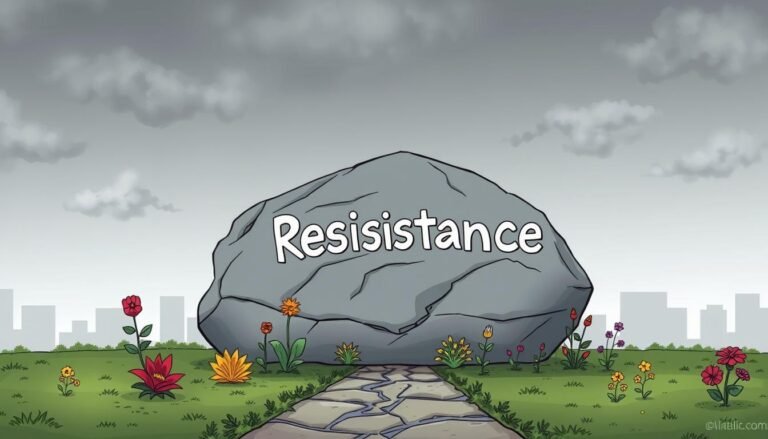Enhancing Employee Well-Being and Mental Health in the Irish Workplace
Imagine starting your work day in Dublin. The sky is grey and it’s a bit cold. You see your coworkers and say hello. But what you don’t see are the struggles they face. Mary is dealing with grief. Liam has back pain. Anna worries about money every night. This is the challenge faced by many in Irish offices. Their mental health affects how well they work each day.
In Ireland, a huge 14 million days of work are missed because people are sick or absent. Musculoskeletal Disorders (MSDs) cause half of those absences. This issue costs the nation €750 million and leads to 7 million days off. Such big numbers show we must do better in supporting our workers.
Workplace stress is a big deal, affecting many areas of health. 60% of Irish workers are stressed about money, even more than during the pandemic. This stress harms their mental health, sleep, and sense of self. 76% say it affects their job badly. It’s clear stress lowers how well people work, showing we need good wellness plans at work.
Let’s talk about improving mental health at work in Ireland. We’ll look at wellness programs, mental health support, handling stress, and balance between work and life. Helping employees be mentally healthy makes them work better and be happier.
Key Takeaways
- 14 million workdays are lost annually in Ireland due to employee ill health.
- Work-related stress leads to significant financial and productivity losses.
- Bereavement and financial stress are major factors affecting employee mental health.
- Effective well-being initiatives can enhance employee productivity and engagement.
- Implementing supportive workplace wellness programs is crucial for business success.
The Importance of Employee Well-Being in Ireland
Employee well-being is key to a healthy and productive workplace in Ireland. Organizations now see how closely mental health links with work success.
Current Statistics and Trends
In Ireland, 76% of employers believe they should care for employee mental health. But, a massive 80% don’t back mental health services at work. Nearly all staff worry their work impacts their mental health, with 1 in 5 taking days off due to stress or depression.
Employee stress and poor mental health drive up absence and lower performance. These issues often lead to long leaves from work. Surprisingly, only half of Irish businesses have a clear well-being plan. And 66% of employers are nervous about how mental health could affect their teams.
Impact on Business Performance
Studies show a clear link between well-being and better business results. Improve well-being by 4%, and companies make 1% more in profits. They also cut their turnover rate by 1%.
Businesses focusing on well-being see more productive workers and fewer missing due to sickness. Yet, many leaders are not fully on board with these ideas. Taking strong actions on mental health can help overcome these leadership challenges.
Workplace Wellness Programs in Irish Companies
In Irish companies, workplace wellness programs have become quite popular. These corporate wellness Ireland efforts are now considered very important. This is because companies see the many good things these programs bring, like helping employees really participate in their work. When employees are happy and healthy, the business does better too.
Types of Wellness Programs
In Ireland, wellness programs try to make both the body and mind healthier. There are many types to choose from. Some include guidance sessions, genetic testing, and programs for managing food intolerances. Others focus on creating special nutrition plans, improving gut health, dealing with perimenopause, and cleaning toxins out of the body.
Benefits of Implementing Wellness Programs
Having wellness programs in place is a great move for any business in Ireland. They offer lots of benefits. This includes reducing how much employees are absent, saving money, and making the workforce more productive.
| Benefit | Detail |
|---|---|
| Reduction in Absenteeism | Programs can reduce sick leave by up to 25%. |
| Cost Savings | Companies experience a 20% reduction in healthcare costs, with potential savings ranging from $150,000 to $560,000 for an investment of $100,000. |
| Enhanced Productivity | Increased productivity by 15% as measured by key performance indicators. |
| Return on Investment | ROI can range from 50% to 560%, showcasing substantial financial benefits. |
Putting employee health first in Ireland really benefits a company. Employees are more engaged and healthy because of these wellness efforts. This helps make the business stronger and more successful.
Mental Health Support Systems for Employees
It’s key to have strong mental health support at work for a caring environment. We’ll look at how Employee Assistance Programs (EAPs) help, and why a supportive culture is important for better mental health and benefits.
The Role of Employee Assistance Programs (EAPs)
In Ireland, EAPs are crucial for helping employees with personal and work issues. They provide mental health help like counseling and stress workshops. For instance, Ireland loses 11 million work days a year due to mental health, costing €1.5 billion. EAPs lower these costs by spotting mental health issues early.
Worldwide, depression and anxiety cost 12 billion work days, and over US$1 trillion in lost productivity. By using EAPs, companies can help stop these losses. This also makes for a stronger and more efficient work team.
Creating a Supportive Work Environment
A supportive workplace is essential for good mental health. High mental well-being boosts work by up to 12%. It’s crucial to talk openly about mental health, offer resources, and make everyone feel welcome to share their worries. When employees feel their mental health is supported, they’re happier and more involved at work.
This kind of workplace has many benefits:
- More work done
- People care more
- Job satisfaction goes up
- Great employees join
- Better image for the public
- Less callouts
- Saves on hiring costs
- Fewer injuries and sicknesses
- Lower insurance claims
For example, let’s compare mental health support in different businesses:
| Metric | Without Support Systems | With Support Systems |
|---|---|---|
| Absenteeism Days (Annually) | 11 million | Reduction seen |
| Cost per Employee (€) | 818 | Costs go down |
| Productivity Loss (Global) | US$1 trillion | Improvement noticed |
| Employee Morale | Low | Picks up |
Investing in mental health, like EAPs, helps employees and boosts business. Having a workplace that values mental health makes the team stronger and more successful.
The Role of Stress Management Techniques
In Ireland, managing stress is vital because of challenges unique to the country. Irish workers often face tight deadlines, competition, and economic uncertainties. They also value a strong work ethic, which can lead to high stress.
Understanding Work-Related Stress
At work, stress may come from a heavy load, lack of freedom, or conflicts with others. Digital technology blurs the lines between personal and work time, making it hard to escape. This can cause anxiety, make it tough to focus, and even hurt our bodies.
This stress can lead to missing work or not being fully present at work. Over time, it might also cause serious health problems.
Effective Strategies for Managing Stress
To help employees cope, businesses should offer ways to reduce stress. This includes encouraging a supportive team, good communication, and a healthy work-life balance. Things like flexible hours, mindfulness, and talking to a counselor can make a big difference.
Managers should also be trained to recognize and help with stress. And it’s important to offer chances for employees to grow and advance in their careers. This helps them feel more able to handle stress.
Supporting mental health at work isn’t just the right thing to do. It also makes good business sense. Happy, healthy employees are more productive and are likely to stay with the company. They help create a positive culture where everyone can thrive.
Anxiety, depression, and stress can hurt how employees perform and feel about their job. That’s why it’s crucial to train people in mental health first aid and adapt work hours to fit their mental well-being. This makes the workplace a better, more caring place.
The next table shows some common stresses at work and how to deal with them in Ireland:
| Common Stressors | Stress Management Strategies |
|---|---|
| Heavy workloads | Flexible working arrangements |
| Lack of autonomy | Open communication channels |
| Interpersonal conflicts | Access to counseling services |
| Blurring work-life boundaries | Mindfulness programs |
Promoting Work-Life Balance Initiatives
Work-life balance initiatives are key in Irish workplaces. They help boost both employee well-being and productivity. These efforts make sure employees can do well at work and enjoy their personal lives. This leads to happier and more effective workers.
Flexible Working Arrangements
Flexible working, like remote or hybrid models, is working well in Ireland. This is great for over two million workers there. It cuts down on just showing up at work and helps everyone have a better balance. With the right changes in rules and culture, workers feel better both physically and mentally. This keeps them sharp, reduces stress, and makes them more productive.
Encouraging Time Off and Breaks
It’s important to encourage time off and breaks. This helps maintain a good work-life balance and keeps workers happy. Companies that value vacations see their teams do better. When workers take a real break, they come back more focused and motivated. They also enjoy benefits like fitness classes and healthy snacks, which are good for both body and mind.
Keeping an eye on things like how often workers are absent, how happy they are, and how well they work gives clues to the success of these efforts. The main goal is to create a workplace where people feel respected, driven, and helped. This is good for both the employees and the company in the long run.
| Initiative | Benefit |
|---|---|
| Flexible Working Arrangements | Reduces presenteeism, promotes work-life balance, and increases employee satisfaction |
| Encouraging Time Off | Boosts mental health, improves overall morale, and enhances productivity growth |
| Wellness Initiatives | Supports physical health, connected to mental well-being, and increases engagement |
Implementing these initiatives helps build a supportive and effective workplace. This is good for workers and for the business.
Integrating Mindfulness Practices in the Workplace
In the last few years, many workplaces have started using mindfulness. This is because stress has become a major health issue at work. The Chartered Institute of Personnel and Development found in 2016 that workplace stress is on the rise.
Through activities that reduce stress, companies are working to make their workers healthier and more productive.
Benefits of Mindfulness for Employees
Mindfulness helps workers deal with stress and feel better. Jon Kabat-Zinn showed in 1994 that it can lower stress and anxiety. In a study by Lutheran Social Services (LSS), 50 workers took part in a mindfulness course. Over 70 more people joined later. They found that stress management and self-care improved, leading to a happier work environment.
How to Implement Mindfulness Programs
To start a mindfulness program, there are many ways to go about it. For example, some places use an eight-week course. The National College of Ireland’s had positive results. Almost everyone showed up. Another approach is to have quick mindfulness exercises during the day. This could be meditation or coaching. It helps keep everyone involved.
For such programs to work, feedback is key. Health organizations like Healthy Ireland emphasize building strong health strategies. They say learning to manage stress through mindfulness is vital. This not only helps employees stay healthy but also keeps them working well.
Conducting Psychosocial Risk Assessments
In today’s fast-paced work world, checking for psychosocial risks is crucial. This helps keep the workplace safe and supportive. Businesses look for stress factors in work and try to lessen them. This is how they manage mental risks to keep work in Ireland safe and enjoyable.
Identifying Potential Risks
Spotting work stress factors is a must. It’s a legal duty for bosses in Ireland. Things like unclear roles, too much work, and not enough support cause stress. They can make half of the Public Health staff feel stressed out.
Steps to Mitigate Psychosocial Risks
To manage mental health risks well, there are key steps:
- Identifying hazards: Spot job stressors and risks.
- Assessing risks: Look at how these risks can harm mental health.
- Implementing control measures: Take actions to reduce risks. This can mean changing job roles, having counseling for employees, teaching about bullying at work, and flexible working hours.
- Recording findings: Keep a record of the risks found and how they were dealt with. This is important for being clear and responsible.
- Reviewing controls: Always check if the safety measures are working. Adjust them as needed.
It’s key to involve many experts and workers in this process. HR teams, health and safety professionals, and mental health experts should be part of it. Regular checks are also needed to make sure these strategies stay helpful in making workplaces mentally healthier.
| Year | Anxiety Symptoms (%) | Burnout Symptoms (%) |
|---|---|---|
| 2020 | 26.1% | 29.8% |
| 2021 | 23.3% | 29.5% |
Doing and checking mental health risks isn’t just about following rules. It makes the workplace in Ireland safer and more welcoming. It also boosts how happy people are with their jobs, cuts down on people leaving, and helps everyone work better.
The Impact of Mental Health Awareness Campaigns
In Ireland, mental health campaigns play a key role in raising employee awareness. They help educate workers about mental health issues at work. These efforts create a culture of learning that tackles these problems head-on with care.
Increasing Awareness and Education
It’s crucial that employees understand mental health issues. This understanding makes the workplace more welcoming and helpful. A research study found that mental health programs make a big difference in small to medium-sized businesses.
However, getting these programs started can be tough. Challenges include not enough resources, the fear of being judged, and worries about how it might affect one’s job.
Research shows that small to medium-sized businesses are doing better in supporting mental health. They’re outperforming in areas like offering staff training for wellbeing. But, there’s still a big need for ongoing education to help everyone understand and deal with mental health issues.
Examples of Successful Campaigns
Some Irish organizations have had great success with wellness programs. They’ve shown how focusing on mental health brings real benefits. For example, companies are using technology and data analysis to personalize wellness programs.
One remarkable project is MENTUPP. It’s designed to help the construction, healthcare, and ICT fields combat stress. The project spreads mental health knowledge and shares stories of success from similar companies. This encourages more support for wellness programs.
| Sector | Main Stressor | Outcome |
|---|---|---|
| Construction | High Job Demands | Reduced Burnout and Increased Productivity |
| Healthcare | Low Job Control | Improved Morale and Retention |
| ICT | Work-Life Imbalance | Better Employee Well-being and Attendance |
Ireland is leading the way with these campaigns. It’s making sure employees are more aware of mental health. This leads to better mental health education and supports successful wellness efforts at work.
Conclusion
The journey to better mental health at work in Ireland is very important. This is especially true now. We’ve learned that using many methods can make employees feel better. Such as good wellness programs, strong support, and ways to deal with stress. A good balance between work and life is also key.
Mindfulness, for example, has shown to be very helpful. It reduces stress and anxiety. It also boosts how well people work. Sadly, not many companies support mental health. Only a few put money into mental health programs, though most know they should.
The time after the pandemic has taught us a lot. Many are struggling with mental health at work. Some find it hard to work well in new, flexible ways. Others work even when they’re not feeling their best. Big companies are trying to help more. But small ones need to join in too. Also, making sure that what is aimed at helping employees really works is crucial. Mental health support in Irish companies must improve. A healthy and happy work environment is key to success.
FAQ
What are the most common mental health issues in the workplace?
Common mental health issues at work are depression, anxiety, stress, and burnout. Dr. Jane Bourke from University College Cork found these to be more common after the pandemic. About 1 in 5 firms in Ireland saw these problems.
How do mental health issues impact business performance?
Mental health problems affect work in big ways. They lead to more people being absent, lower work quality, and more people leaving jobs. A study by University College Cork showed that absences due to mental health are growing.
What types of workplace wellness programs can companies implement?
Companies can have many kinds of wellness programs. They can offer stress management, activities for health, EAPs, and training to boost resilience. These aim to make employees feel better, reduce stress, and make the workplace better.
What are the benefits of implementing wellness programs in the workplace?
Wellness programs decrease absences and help people understand mental health better. They teach how to cope with stress and make people stronger. They also make the workplace nicer and boost how much employees get involved and work.
How do Employee Assistance Programs (EAPs) support mental health?
EAPs give private counseling and help for mental health issues. They also offer resources for tough times like bereavement, suicide, or menopause. This makes the workplace show it cares more, making it a better place for everyone.
What are effective strategies for managing work-related stress?
Effective ways to deal with stress are finding what causes it and talking openly about it. Also, having flexible work times and mental health resources can help. Plus, encouraging mindfulness and taking regular breaks are good.”.
How can companies promote work-life balance among employees?
Companies can help their teams balance work and life by having flexible work times, like working from home or part-time. They should also urge employees to take time off. This makes workers happier and cuts down on showing up without really being there.
What are the benefits of integrating mindfulness practices in the workplace?
Mindfulness at work can lower stress and make concentration better. Having daily mindfulness or special programs creates a work environment that supports people and helps them do better.
What are psychosocial risk assessments?
These checks find things at work that could lead to stress. Their goal is to stop these stressors. By doing this, the work environment becomes safer and more caring, which is good for everyone’s mental health.
Why are mental health awareness campaigns important in the workplace?
These campaigns make people more aware of mental health issues. They help everyone understand and get involved. They show that caring about mental health makes the workplace better for everyone, as seen in top Irish companies.
Source Links
- Employee Mental Health & Wellbeing in the Irish Workplace – Online eLearning Training Courses
- Ireland employers look to boost employee engagement and wellbeing
- 6 Ways to Improve Employee Mental Health – Irish Life Health
- Why workplace wellbeing matters – ..rteredaccountants.ie
- Aon survey reveals ‘work-life’ balance is the top wellbeing concern for Irish employers
- How can Irish employers support the mental health of their employees?
- The Economics of Workplace Wellness Programs in Ireland.
- Promoting Workplace Wellbeing: The Irish Perspective
- Mental Health – Healthy Workplace Ireland
- Organizational Best Practices Supporting Mental Health in the Workplace
- How to support mental health at work
- Nurturing Well-being in the Irish Workplace: Strategies for Managing Work Related Stress
- Promoting Mental Health and Well-being in the Irish Workplace – Salutem Advisory
- Healthy Ireland @ Work
- Strategies for Promoting Employee Health and Well-Being in the Workplace
- How to Improve Employee Wellbeing at Work
- Mindfulness Impacts Employee Wellness at Lutheran Social Services
- Mental Health Risk Assessment — Focused Training Ireland
- OP-EURP230164b 49..49 ++
- Psychosocial risks and mental health at work
- Promoting employee wellbeing and preventing non-clinical mental health problems in the workplace: a preparatory consultation survey
- (PDF) Reviewing employee well-being and mental health initiatives in contemporary HR Practices
- Mental Health Promotion Interventions and Supports Provided by Voluntary Organisations to Workplaces, Executive Summary
- Mental Health and Well-being for Remote Employees in Ireland – Biz Guru
- Employees’ support strategies for mental wellbeing during and beyond the COVID-19 pandemic: Recommendations for employers in the UK workforce








